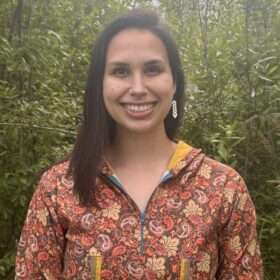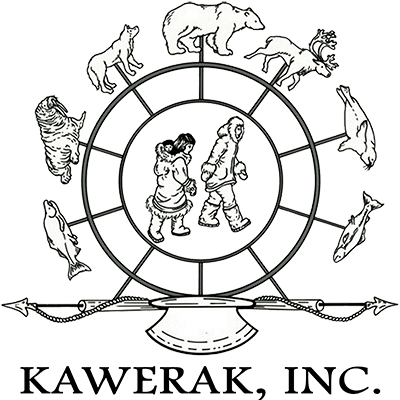What does Inuit-led environmental conservation mean to you?
Inuit-led conservation means providing educational opportunities to engage the community’s youth in practices promoting and preserving Indigenous traditions. The younger generations of our communities hold immense potential as conservation advocates, as they are the ones who will inherit and live on the land for generations to come. It is crucial to instill in them a deep respect for the land they inhabit and the practices of hunting, gathering, and sustainable living.
What are your educational and career goals? How do your goals relate to environmental conservation?
With my degree in English and continuing to a master’s program in elementary education, my goal is to become a middle school teacher in Nome. I have spent my undergrad focusing on learning more about Indigenous teaching models and how to incorporate Inuit values and knowledge into Western classrooms. School environments in rural Alaska offer Indigenous leaders a setting to share knowledge with students about the land and the significance of treating it with reverence. By nurturing Inuit-led environmental conservation advocacy from an early age, we ensure that traditional practices persist on Inuit land as they have for generations.
Please share a reflection of when you have felt a connection to the ocean or the land.
Whenever I am on the tundra picking berries, I feel strongly connected to the land and all it provides. Every time my family goes out picking, without fail, my mom yells out to all of us, “Don’t step on the berries!” So off we go, carefully roaming through the tundra, ensuring we don’t step on any patches and never wanting to leave because there are always so many more to pick. This time spent on the tundra reinforces my understanding that our relationship with the environment isn’t just about the resources it can offer but about nurturing a bond that enriches our lives. These moments of picking motivate me to engage in environmental conservation, ensuring that others can also experience the beauty of our natural world, even if it is as simple as not stepping on the berries!

